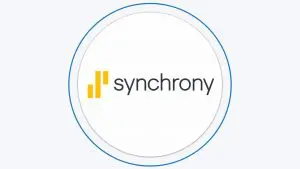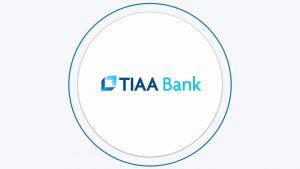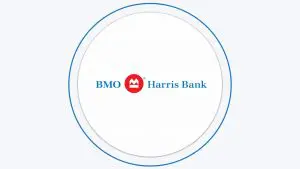If you're looking for a low-risk investment option that can earn you some interest, then you might want to consider a certificate of deposit (CD).
CDs are a type of savings account that typically offer higher interest rates than traditional savings accounts, but with the tradeoff of locking your money up for a set period of time. When it comes to choosing a CD, one of the key decisions you'll need to make is how long to commit your funds for.
In this article, we'll compare the rates, minimum deposit requirements, and early withdrawal fees for 1-year and 2-year CDs to help you make an informed decision about which one is right for you.
* Make sure to adjust APY, terms and deposit
1-Year vs. 2-Year CD Rates: Which Is Better?
It is apparent that many banks and credit unions offer comparable rates for 1-year and 2-year CDs. This seems counterintuitive because CDs typically offer higher yields for longer terms, which require a greater commitment and offer less flexibility.
Some banks, such as Chase Bank, Bank Of America, and Live Oak, offer a significantly higher rate for a one-year CD.
Usually, the big banks offer a “special” CD for the shorter term, making it more appealing than a two-year CD. The rest, the differences are minor.
Financial Institution | 1-Year APY | 2-Year APY | Min Deposit |
|---|---|---|---|
4.00% | 3.50% | $0 | |
4.00% | 3.80% | $0 | |
4.10% | 4.00% | $1,500 | |
4.00% | 4.10% | $0 | |
3.40% | 3.20% | $1,000 | |
2.50% – 2.60% | 2.91% – 3.01% | $5,000 | |
4.10%
| 4.00% | $2,500 | |
5.00%
| 4.40% | $1,000
| |
4.05% | 3.90% | $1,000 | |
4.20%
| 4.20% | $1,000
| |
4.45% – 4.20% | N/A | $1,000 | |
4.20% | 2.00% | $2,500 | |
3.75% | 3.50% | $2,500 | |
3.90% | N/A | $0 | |
4.20%
| 3.95% | $500 | |
4.20% | 4.15% | $25,000 | |
3.25% | 0.50% – 1.01% | $500 | |
2.75% (13 months) | 0.03% | $1,000 | |
2.00% | 2.00% | $1,000 | |
3.25% | 4.00% | $0 | |
4.40%
| 4.00% | $1,000 | |
N/A (11 months) | 1.00% | $250 | |
2.00% | 1.75% | $50 | |
4.40%
| 4.00% | $1,000
| |
4.35%
| N/A | $100,000 |
Top Offers From Our Partners
Compare 1-Year vs. 2-Year Early Withdrawal Fees
If you withdraw funds from a CD before the maturity date, the bank or financial institution may impose an early withdrawal fee as a penalty.
For example, if the penalty is equivalent to 270 days of interest, but you withdraw your funds after only 180 days, then the penalty will be limited to 180 days of interest.
Overall, the early withdrawal penalty is the same for most banks and credit unions. There are some financial institutions where we can a difference such as Chase (180 vs 365 days of interest), Synchrony bank (90 vs 180 days of interest) and Capital One (3 vs 6 months of interest).
Also, brokered CDs don't incur a penalty, but there are fees and other costs associated, depending on the deposited amount.
Financial Institution | 1-Year CD Penalty | 2-Year CD Penalty |
|---|---|---|
90 days of interest
| 180 days of interest
| |
3 months interest
| 6 months interest
| |
180 days simple interest
| 180 days simple interest
| |
6 months interest
| 6 months interest | |
365 days / 30% of dividends (The lower) | 365 days / 30% of dividends (The lower) | |
90 days of dividends | 180 days of dividends | |
90 days of interest | 180 days of interest | |
25% of total interest earned | 25% of total interest earned | |
Fees, based on the amount | Fees, based on the amount | |
Fees, based on the amount
| Fees, based on the amount | |
Fees, based on the amount | N/A | |
90 days of interest | 180 days of interest | |
100% of interest earned | 100% of interest earned | |
60 days of interest
| N/A | |
180 days interest
| 180 days interest
| |
180 days of interest
| 180 days of interest
| |
90 days of interest | 180 days of interest | |
180 days of interest | 180 days of interest | |
180 days interest
| 365 days interest
| |
270 days interest
| 270 days interest
| |
90 days of interest
| 180 days of interest | |
60 days of interest
| 120 days of interest
| |
90 days of dividends
| 180 days of dividends
| |
30 days of interest | N/A |
Should I Consider 1 Year or 2 Year CD?
Deciding to opt for a 2-year CD instead of a 1-year CD can be a sound choice in specific circumstances, depending on your financial goals and situation. Here are a few reasons why you might want to consider a 2-year CD:
Lock in High Interest Rates: If you expect interest rates to decline and want to secure your money in a higher interest, a 2-year CD may be a suitable option. This can enable you to earn more over the long-term, which can be advantageous if you're aiming to increase your savings.
Peace of Mind: If you're seeking a low-maintenance investment option that requires minimal attention, a 2-year CD may be suitable for you. This is particularly true if you have long-term savings objectives, such as saving for a down payment on a home or your child's education.
That said, there are a good reason why you might prefer a 1-year CD over a 2-year CD:
Anticipated Interest Rate Increases: If interest rates go up while your CD is active, you may miss the chance to earn higher interest rates. By choosing a 1-year CD, you can be more flexible and reinvest your money in a higher-rate CD when your term ends.
In summary, selecting a 2-year CD over a 1-year CD can be a wise decision if you're looking to secure higher interest rates and long-term savings goals. However, if you value liquidity and flexibility, a 1-year CD might be more appropriate for you. It's critical to evaluate the advantages and disadvantages of each option and consider your unique financial situation before making a decision.
























